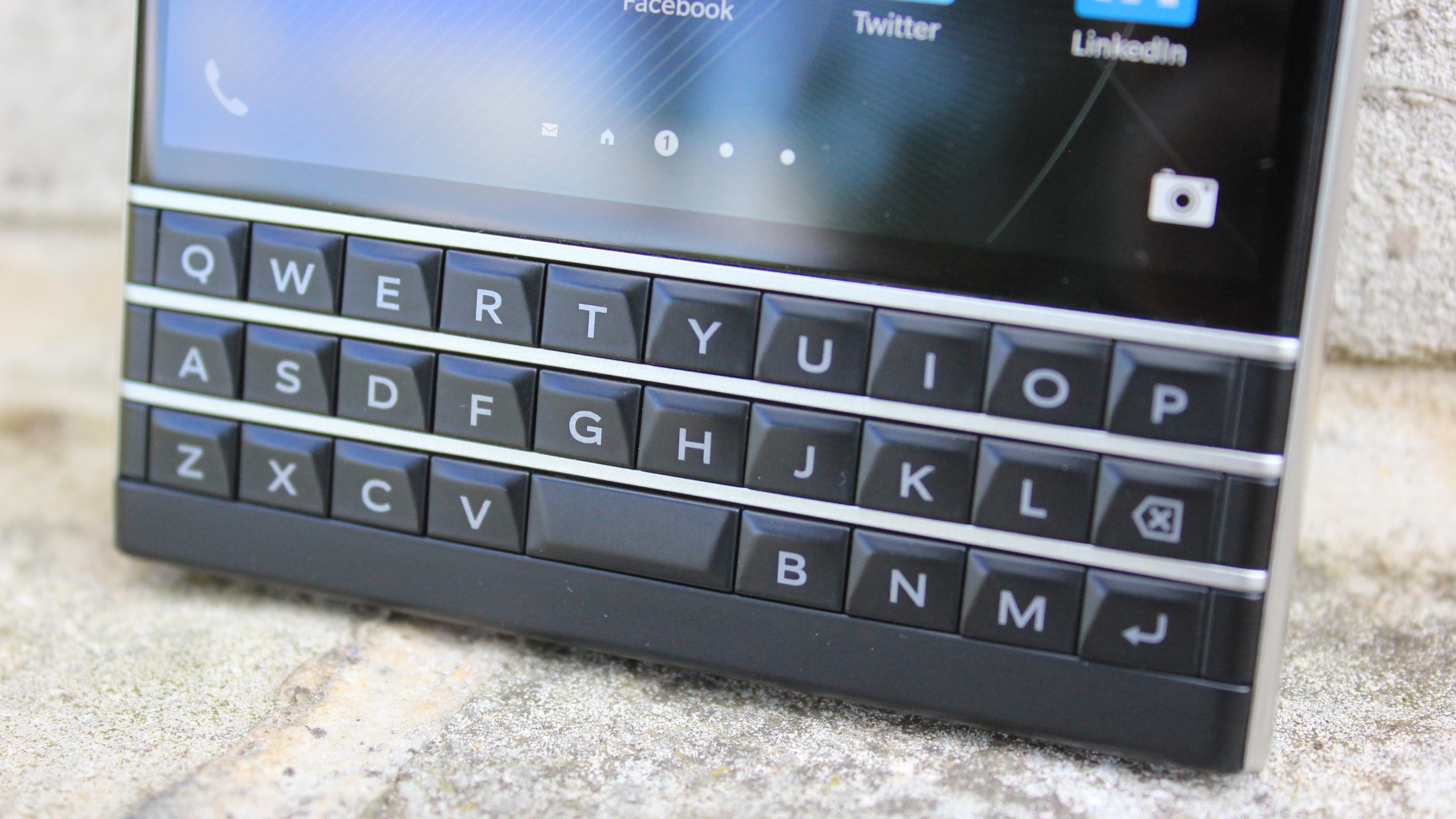BlackBerry and Samsung join forces: will it impact Apple?
Probably not

Sign up for breaking news, reviews, opinion, top tech deals, and more.
You are now subscribed
Your newsletter sign-up was successful
At one time, it seemed as though Apple would crush Samsung at the enterprise level. Businesses were increasingly choosing Apple's mobile devices, lured in by the usability of the iPhone and iPad. But a new partnership with BlackBerry may give Samsung an edge in the market, especially with Samsung's focus on creating devices that appeal to IT security needs.
The partnership involves integrating Samsung KNOX with BlackBerry's new services: WorkLife by BlackBerry and SecuSuite. Businesses that choose Samsung as a provider will have access to a full suite of services specifically designed for the enterprise. This is in direct competition with Apple, which has not yet directly addressed some of these issues. Apple's deal with IBM is designed to meet enterprise needs, but the deal mostly involves assigning an account manager to enterprises for personalized support.
The current market
In recent years, the Android-iOS-BlackBerry battle has been an interesting one to watch. As of late 2014, though, Apple was winning in the enterprise, with 69% of new activations by platform for smartphones and 89% of activations for tablets, according to a recent report by Good Technology. The surge was largely attributed to the September release of the iPhone 6 and iPhone 6 Plus, with activations having dropped last summer.
On the other hand, BlackBerry has been struggling for years. The company's devices now make up only 2.4% of the smartphone market, according to a report by Strategy Analytics. This has occurred despite BlackBerry's efforts to reach out to the consumer market by creating a wide variety of form factors for its phones. Instead of continuing in that direction, BlackBerry has attempted to recapture the enterprise market it once dominated, citing enterprise trust as its edge.
Samsung and BlackBerry
This new partnership with Samsung allows BlackBerry Enterprise Service (BES) to increase the options available to its enterprise customers. Called BES12, the solutions will work on BlackBerry, iOS, and Android devices, making them more secure.
Samsung is integrating BES12 into its Knox security software, used to secure devices like the newly announced Galaxy S6. Earlier in 2014, a high-profile security flaw was found in Knox, and Samsung is likely interested in restoring enterprise confidence in the platform.
The new WorkLife by BlackBerry solution allows employees to switch from "work" to "personal" mode on a device for making calls and sending texts. A personal line can also be added to a work device that eliminates the need for an employee to carry two devices around. SecuSUITE adds an unprecedented level of security to mobile devices, putting state-of-the-art encryption to use to keep devices safe from infiltration.
Sign up to the TechRadar Pro newsletter to get all the top news, opinion, features and guidance your business needs to succeed!
The Apple implications
Apple, meanwhile, is working hard to address problems that have long existed in its support for the enterprise. For years, the iPhone operated as primarily a consumer-based product, but as the iPad has grown more popular, more businesses have turned to Apple as a mobile provider. This has led to a growth in the use of iPhones at the enterprise level, leading Apple to beef up its support staff.
There are ways to separate work and personal device use on an iOS device. Using a free app called Divide for iOS, which allows a user to separate work and personal use on the same device. Work information is encrypted and subject to enterprise rules about password protection, while personal use is left up to the device owner. However, with Android's 2014 purchase of Divide, industry insiders have speculated that the app's days on iOS may be limited.
Apple's enterprise tools
Apple does have tools for enterprise security administrators. At the server level, administrators now have tools that they can use to set up multiple devices without plugging them into a computer. Previously, administrators had to install a profile on each device through a PC, which proved extremely time-consuming when thousands of devices needed to be set up at once.
The changes also allow administrators to set up profiles on devices that prevent users from removing restrictions. This gives enterprises greater control over their smartphones and tablets to protect the server from irresponsible behaviors. Both governments and companies also have access to easier licensing through Apple's Volume Purchase Program.
Apple also partnered with IBM to incorporate business apps that will infuse IBM's data and analytics prowess into the iPhone and iPad. As part of the deal, IBM is developing more than 100 industry-specific apps developed exclusively for Apple's mobile devices, including native applications.